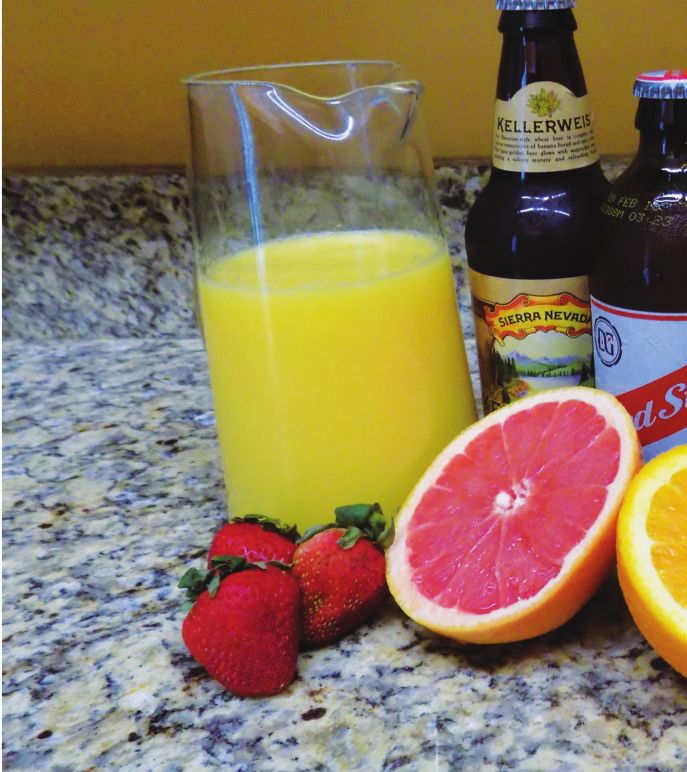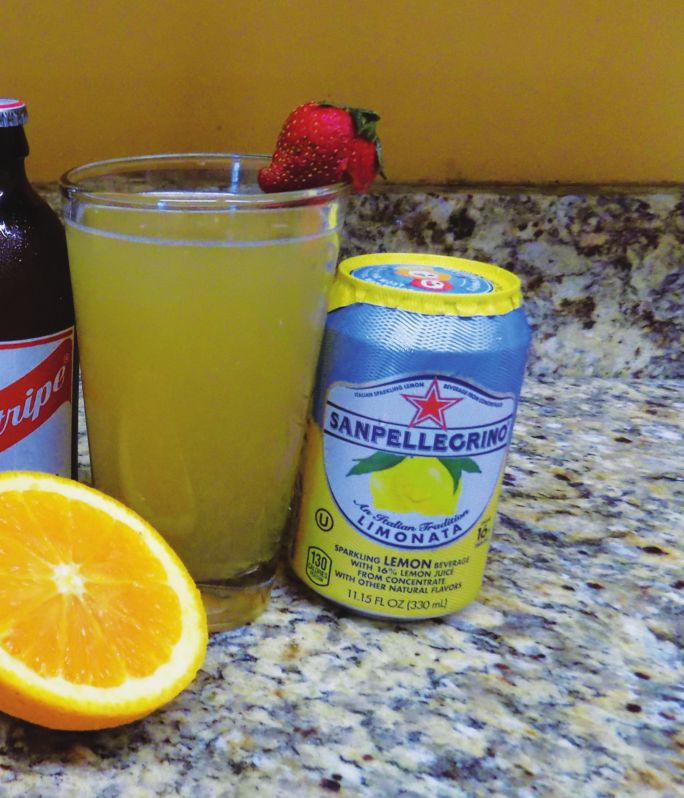
Make your own summer elixir
We are lazy.
Loathe to get out of our cars, we use the drive-thru – it is too much work to write “through” – when we want a hamburger. Cheese comes already grated. Remote controls are no longer enough. When we want to change the channel or the volume, or even order a pizza, we speak into a gizmo we bought from Amazon that takes care of everything.
This state of affairs has, sadly, invaded the world of drink like a spilled glass of bordeaux spreads over the table top and onto your best trousers. Along with ticks, sunburns and stifling humidity, the arrival of summer now brings a flood of malt-based concoctions aimed at quenching thirsts and turning a profit, not necessarily in that order.
Prickly pear cactus. Hibiscus. Grapefruit.
Blueberries. Oranges. Peaches. Corpse-flower blooms.
We made that last one up, but plants that smell like rotting flesh can’t be far off in an anything-goes world of seasonal beers where most anything that grows in the summer can, and has been, added to beers on the notion that it’s all good. It is not all good. Some of it – much of it – is horrid, and yet it is found in the coolers of thirst-quencher purveyors throughout the nation. It does not have to be this way without sacrificing the pleasures of lighter, fruitier fare, so long as you are willing to spend just a tiny amount of effort to make it happen.
I was reminded of this during a recent trip to Reno, where I had occasion to visit The Brewer’s Cabinet, a fantastic, if a bit cramped, micropub with a bar featuring a medievallooking iron press that was being used to squeeze the bejeebers out of grapefruits, which didn’t stand a chance. The halved citrus orbs exploded, giving up their nectar in torrents and prompting anyone within eyesight, namely me, to order a greyhound
simply to confirm that a cocktail made with fresh juice is, indeed, as
good as it looks. It was, and the same principle applies to beer.
Shandy,
or beer mixed with a nonalcoholic beverage, generally fruit-based,
dates back centuries. Unlike fruit-flavored beers, which are brewed with
orange peels or what have you thrown into the brewing vat, shandies are
low in alcohol content, typically south of 3 percent, and light as a
proverbial summer breeze. As the saying goes, they taste great and are
less filling, and so you can enjoy as many as you need to keep hydrated
without worrying about having to summon Uber for a ride home. You can
buy shandies already canned or bottled, but much better, really, to make
your own.
Start
with a high-quality brew. Think light. Even those who aren’t
particularly fond of hefeweizens often feel otherwise when wheat beers
are used as the base for a shandy – Blue Moon or equivalent is fine.
Lagers are also good candidates. We would suggest Red Stripe, a
best-during-summer beer that often doesn’t get the respect it deserves
from the beer snob crowd but can’t be beat, so far as we’re concerned,
when the weather turns hot.
The
nonalcoholic portion of the equation is equally important. Anyone who’s
seen someone pour canned tomato juice into a schooner of tap beer,
chased, perhaps, with a bit of salt, has seen, by definition, a shandy
made, but who, really, wants to drink that? We recommend a sparkling
lemonade such as Sanpellegrino, which helps keep up the fizz factor.
This is a classic recipe, called a radler in Germany, where it is said
to have originated a century or so ago when an innkeeper, finding
himself short on beer, stretched the available supply to satisfy the
thirsts of bicyclists. The recipe is forgiving. Start with a 50-50 blend
and adjust to taste.
Grapefruit
juice is also worthy. The possibilities are, if not limitless, at least
lengthy. Most any kind of fruit juice will do, but please use the kind,
if you can, that isn’t made from concentrate, and the fresher the
better. Some will favor cola, ginger ale, Fresca and other sodas,
although we find this a bit sweet for our palate. Nonetheless, the risk
is low and the potential reward high. If you don’t like the result,
you’ve risked nothing more than a few ounces of beer and a like amount
of mixer. Which is better than getting stuck with a six-pack of pre-made
stuff that will migrate, untouched, to the back of the fridge by
September.
Contact Bruce Rushton at [email protected].